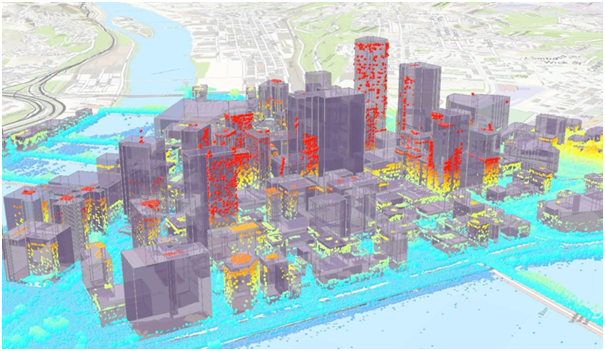Urban Planning
Urban planning, also known as regional planning, town planning, city planning, or rural planning, is a technical and political process that is focused on the development and design of land use and the built environment, including air, water, and the infrastructure passing into and out of urban areas, such as transportation, communications, and distribution networks and their accessibility.

Our services include preparation of:
- Development Plans
- Regional Plans
- Environmental Plans
- Local Area Plans
- Transportation Plans
- Village Development plans.
Master Planning
A master plan is a dynamic long-term planning document that provides a conceptual layout to guide future growth and development. Master planning is about making the connection between buildings, social settings, and their surrounding environments. A master plan includes analysis, recommendations, and proposals for a site’s population, economy, housing, transportation, community facilities, and land use. It is based on public input, surveys, planning initiatives, existing development, physical characteristics, and social and economic conditions.
Regional Planning
Regional planning deals with the efficient placement of land-use activities, infrastructure, and settlement growth across a larger area of land than an individual city or town. Regional planning is related to urban planning as it relates land use practices on a broader scale.
It also includes formulating laws that will guide the efficient planning and management of such said regions. Regional planning can be comprehensive by covering various subjects, but it more often specifies a particular subject, which requires region-wide consideration.
Environmental Planning
Environmental planning is the process offacilitating decision-making to carry out land development with consideration given to the natural environment, social, political, economic, governance factors and provides a holistic framework to achieve sustainable outcomes. A major goal of environmental planning is to create sustainable communities, which aim to conserve and protect undeveloped land.
Local Area Planning
Local area plan is a legal document which is to be prepared by and executed by urban local bodies. LAP is a plan based upon the local needs and characteristics. It specifics tool for assessment of public satisfaction and participation in planning process and address ground realities.
LAP focuses on the following elements,
- To guide the development or re-development of land
- Conservation of heritage building and physical features
- Making infrastructure and amenities available, managing the area to enhance health and safety of residents
- To support economic development
- To enhance the quality of living and environment
Transportation Planning
Transportation planning is the process of defining future policies, goals, investments, and designs to prepare for future needs to move people and goods to destinations. As practiced today, it is a collaborative process that incorporates the input of many stakeholders including various government agencies, the public and private businesses. Transportation planners apply a multi-modal and/or comprehensive approach to analysing the wide range of alternatives and impacts on the transportation system to influence beneficial outcomes.
Village Development Plan
Village Development Plan brings together both the citizens and their elected representatives in the decentralized planning processes. It is expected to reflect the development issues, perceived needs and priorities of the community, including that of the marginalized sections. Apart from the demand related to basic infrastructure and services, resource development and convergence of departmental schemes, Village Development Plan has potential to address the social issues.
To learn more about our urban planning domain or enquire about collaborationconnect with us at urbanplanning@planninginsights.in